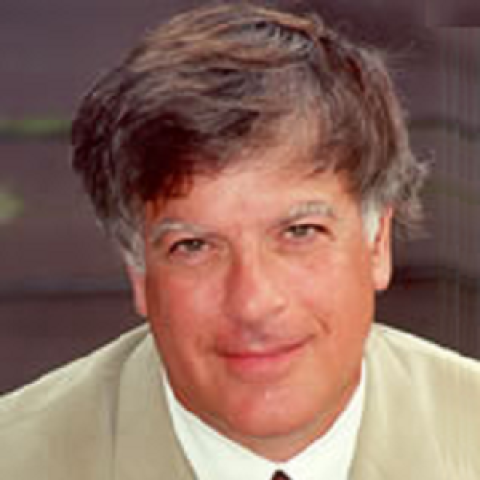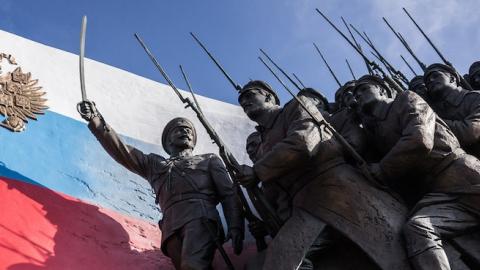President Obama’s sanctioning of Russia’s domestic and military intelligence agencies and expulsion of 35 spies posing as diplomats was a long overdue response to Russian espionage and interference in U.S. elections, but it almost certainly will not discourage similar abuses in the future.
The Russians are unlikely to be chastened because the drive to undermine and subvert the West stems not from tactical objectives — even an objective as important as helping elect a preferred U.S. presidential candidate — but rather from the nature of the Russian system itself.
The CIA and FBI apparently agree that hackers linked to Russian intelligence stole thousands of emails from the Democratic National Committee and the personal account of Hillary Clinton’s campaign manager, John Podesta, in order to help elect Donald Trump president.
Russian views on Clinton versus Trump, however, are likely to be, at best, only part of the story.
During the campaign, Clinton was more realistic about Russia than Trump whose statements called into question fundamental principles of Western security.
While in office, however, Clinton endorsed the “reset” policy with Russia despite evidence, since confirmed, that the Putin regime ordered the nuclear poisoning in London of Alexander Litvinenko, a former intelligence agent, and was implicated in the murder of Anna Politkovskaya, Russia’s pre-eminent investigative reporter.
Explaining her defeat, Clinton said that Vladimir Putin had “a personal beef” with her over statements in 2011 supporting the pro-democracy demonstrations in Moscow.
In fact, her anodyne statements had no effect on the demonstrations which were a reaction to massive vote fraud that was captured on cell phones. She was accused of inspiring the demonstrations because the Russians preferred to accuse her rather than acknowledge that the protests had a profound internal cause.
Viewed from the U.S., Russia may appear to be obsessed with the results of the American elections but the first concern of Russian leaders is traditionally their hold on power in Russia.
The spectacle of two U.S. candidates competing freely in a contest whose outcome was not determined in advance is a very negative example for the Russian public. The Russians would almost certainly have sought to hack into computers and release discrediting information about one or both candidates no matter who was running.
The information which proved damaging to the Clinton campaign was released by Wikileaks which, functions knowingly or un-knowingly as a front for Russian intelligence.
Julian Assange had a show on RT, the Russian propaganda network and although WikiLeaks claimed to have secret Russian intelligence files among its many purloined documents, nothing sensitive was ever released.
While holed up in the Ecuadorean Embassy in London, Assange asked for his own security detail and suggested that it be staffed by Russian operatives. He also admitted that he counselled Edward Snowden, the NSA leaker, to leave Hong Kong in 2013 and seek asylum in Moscow.
WikiLeaks, however, did not begin its activities with the 2016 elections. It has played a critical role in the release of stolen U.S. documents for years.
In 2010, Bradley Manning, a U.S. soldier, leaked approximately 750,000 documents to WikiLeaks including Afghanistan and Iraq war logs, information on detainees at Guantanamo and hundreds of thousands of State Department cables.
The diplomatic cables leaked by Manning upset America’s relations with countries all over the world and made some nations reluctant to share intelligence information with the U.S.
In 2013, Edward Snowden, who was in close contact with WikiLeaks, leaked documents whose exposure may have been even more damaging to the U.S.
While Snowden was in Moscow where he was granted asylum, stories based on documents he stole revealed details of the NSA’s cooperation with Britain, intelligence operations against China and the fact that the NSA targets at least 122 world leaders, including the German Chancellor Angela Merkel and the Brazilian President Dilma Roussef.
Putin has announced that there will be no retaliation against U.S. diplomats for the expulsions of Russians from the U.S. This may be a gesture toward Trump in the expectation that once he has taken office, Obama’s actions will be overturned. The trajectory of Russian intelligence activities, however, is likely to be unaffected.
Public opinion polls show support for Putin among Russians at 85 percent. But this is, in part, the product of wars in Ukraine and Syria, and relentless propaganda on state TV.
In fact, the Russian leaders are insecure in their power. The corruption and lawlessness in Russia are as pronounced as they were in Ukraine where the regime of Viktor Yanukovych was overthrown in the Euromaidan revolt.
Any extension of democratic liberties would make the possibilities for acting on subliminal discontent a great deal greater.
It therefore probably does not matter what U.S. leaders actually do. Russia will seek to undermine the U.S. because real democracy is anathema to them whether at home or abroad.
Even a new reset will not dissuade them. They would be fatally vulnerable under democratic conditions and they have no intention of allowing them to take hold.















